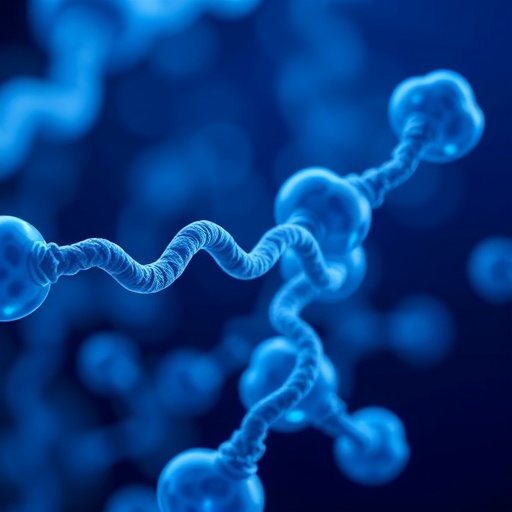In a groundbreaking revelation within the field of lipid metabolism and cardiovascular health, researchers have identified a novel role for beta-2 glycoprotein I (β2GPI) as a regulator of apolipoprotein E (ApoE)-containing high-density lipoprotein (HDL) particles, primarily in females. This discovery has far-reaching implications not only for understanding lipid profiles but also for tailoring personalized medicine approaches in women, who often exhibit different metabolic and cardiovascular responses compared to men.
Beta-2 glycoprotein I, a complex plasma protein, has long been of interest due to its role in the immune system and coagulation pathways. However, the recent findings presented in the study led by Wang et al. elevate this protein’s significance to a new level. By focusing on its interaction with HDL particles, which are critical for lipid transport and cardiovascular health, the study opens new avenues for research into preventative strategies for heart disease, especially among women.
The research specifically highlights the central role of ApoE, a key apolipoprotein involved in lipid metabolism and neural repair. ApoE is crucial for the binding of HDL particles to their receptors, facilitating lipid uptake by tissues and thereby assisting in the regulation of cholesterol levels. The interaction between β2GPI and ApoE appears to be significant in influencing the activity and functionality of HDL, which holds promise for future therapeutic interventions.
Women have unique lipid metabolism patterns often influenced by hormonal variations throughout their life stages, particularly during phases such as menstruation, pregnancy, and menopause. These differences are essential to consider, as they lead to variations in cholesterol levels and cardiovascular risk. The identification of β2GPI as a regulatory factor in this context underscores the necessity for gender-specific studies in cardiovascular research.
The implications of this research extend beyond basic science. Given that cardiovascular diseases are the leading cause of death among women, understanding how different proteins interact with HDL could lead to significant advancements in clinical practices. For instance, a deeper understanding of β2GPI could pave the way for novel therapeutic strategies that specifically target HDL functionality, potentially reducing the risk of cardiovascular events in women.
Furthermore, the findings may stimulate a shift in focus toward the development of gender-specific vaccines or therapies aimed at improving HDL functionality. As researchers continue to investigate the dynamics of lipid metabolism through the lens of gender, collaborations between researchers in lipidology, cardiology, and immunology become increasingly essential. Such interdisciplinary approaches can expedite the translation of basic discoveries into clinical applications.
In the global context, the incidence of cardiovascular diseases shows alarming trends, particularly in developing nations where health systems may not be adequately equipped to address gender-specific risks. This research serves as a clarion call to healthcare policymakers worldwide to prioritize cardiovascular research focused on female populations. Understanding the underlying mechanisms mediated by β2GPI could facilitate the development of new guidelines and treatments that better reflect these unique physiological attributes.
The implications of these findings are also significant for the field of personalized medicine. With the push towards precision health, where treatments and prevention strategies are tailored to individual genetic and biological profiles, identifying proteins like β2GPI that play distinct roles in women can lead to more effective and sex-specific treatment modalities. The promise of such individualized treatments could enhance the therapeutic landscape for millions of women at risk for heart disease.
While these findings are promising, further research is required to elucidate the exact mechanisms by which β2GPI modulates ApoE-containing HDL particles. Future studies will need to explore the potential of biomarker development, where levels of β2GPI could serve as predictors of cardiovascular risk in females. The practicality of such an approach lies in its ability to facilitate early intervention strategies based on individual risk profiles, thus improving prognosis.
Ultimately, the discovery of β2GPI as a crucial player in the regulation of HDL opens the door to an exciting era of understanding lipid metabolism and cardiovascular health through a gendered lens. The intersection of lipidology and gender-specific medicine could redefine our apprehension of heart health and disease susceptibility among women, propelling ongoing research into novel therapeutic avenues.
In conclusion, Wang et al.’s research not only marks a significant advancement in our understanding of beta-2 glycoprotein I but also sets a precedent for future studies that explore the complexities of lipid metabolism through gender-specific prismatic lenses. As we unravel these intricate biological relationships, we stand to improve not just our scientific knowledge but also the clinical outcomes for women worldwide.
Subject of Research: Regulation of Apolipoprotein E by beta-2 glycoprotein I in females.
Article Title: βeta-2 glycoprotein I is a novel regulator of Apolipoprotein E containing HDL particles in females.
Article References: Wang, Y., Qi, M., Chen, L. et al. βeta-2 glycoprotein I is a novel regulator of Apolipoprotein E containing HDL particles in females. Biol Sex Differ 16, 80 (2025). https://doi.org/10.1186/s13293-025-00766-9
Image Credits: AI Generated
DOI:
Keywords: beta-2 glycoprotein I, Apolipoprotein E, HDL particles, cardiovascular health, women, lipid metabolism, biomarkers, personalized medicine.




